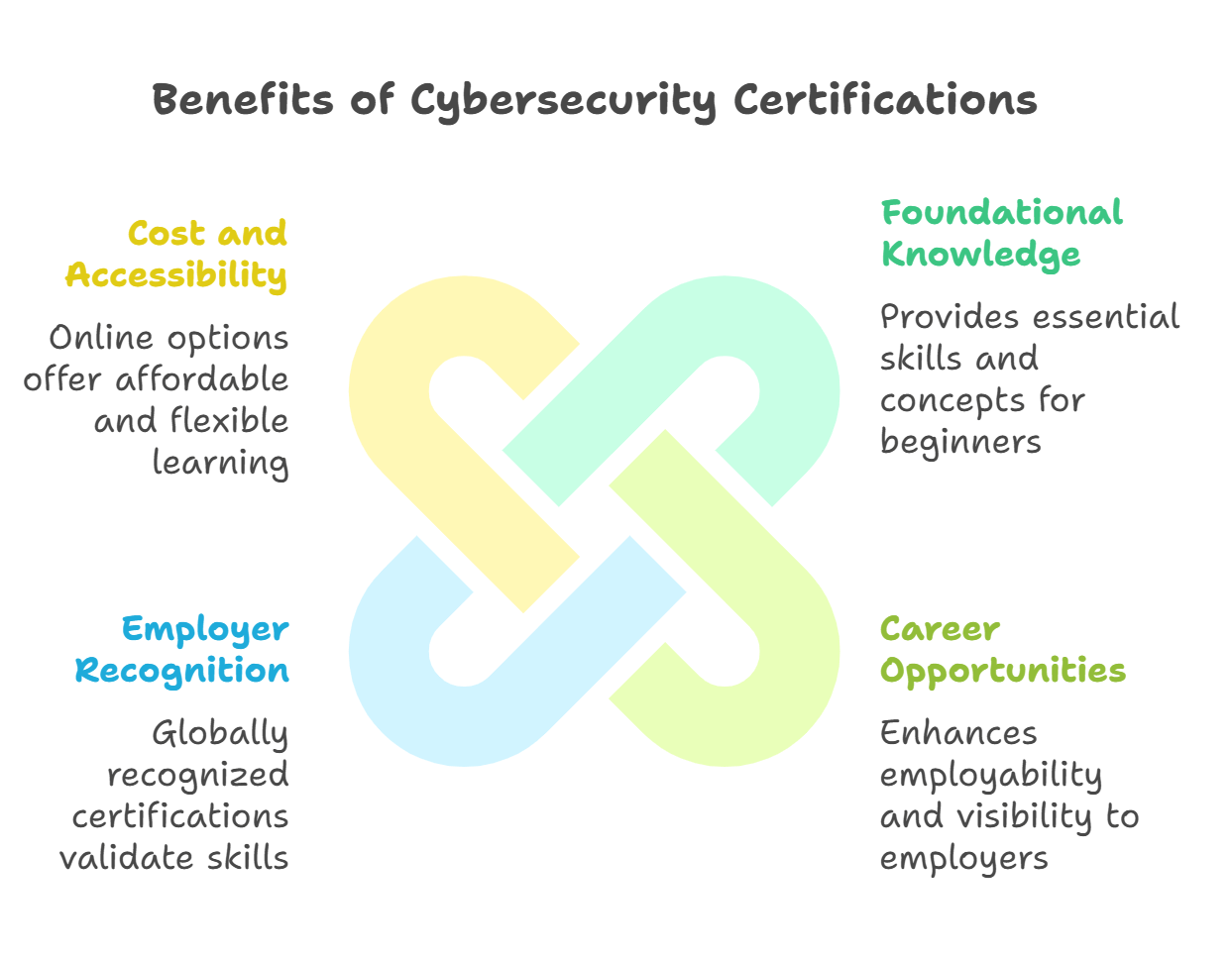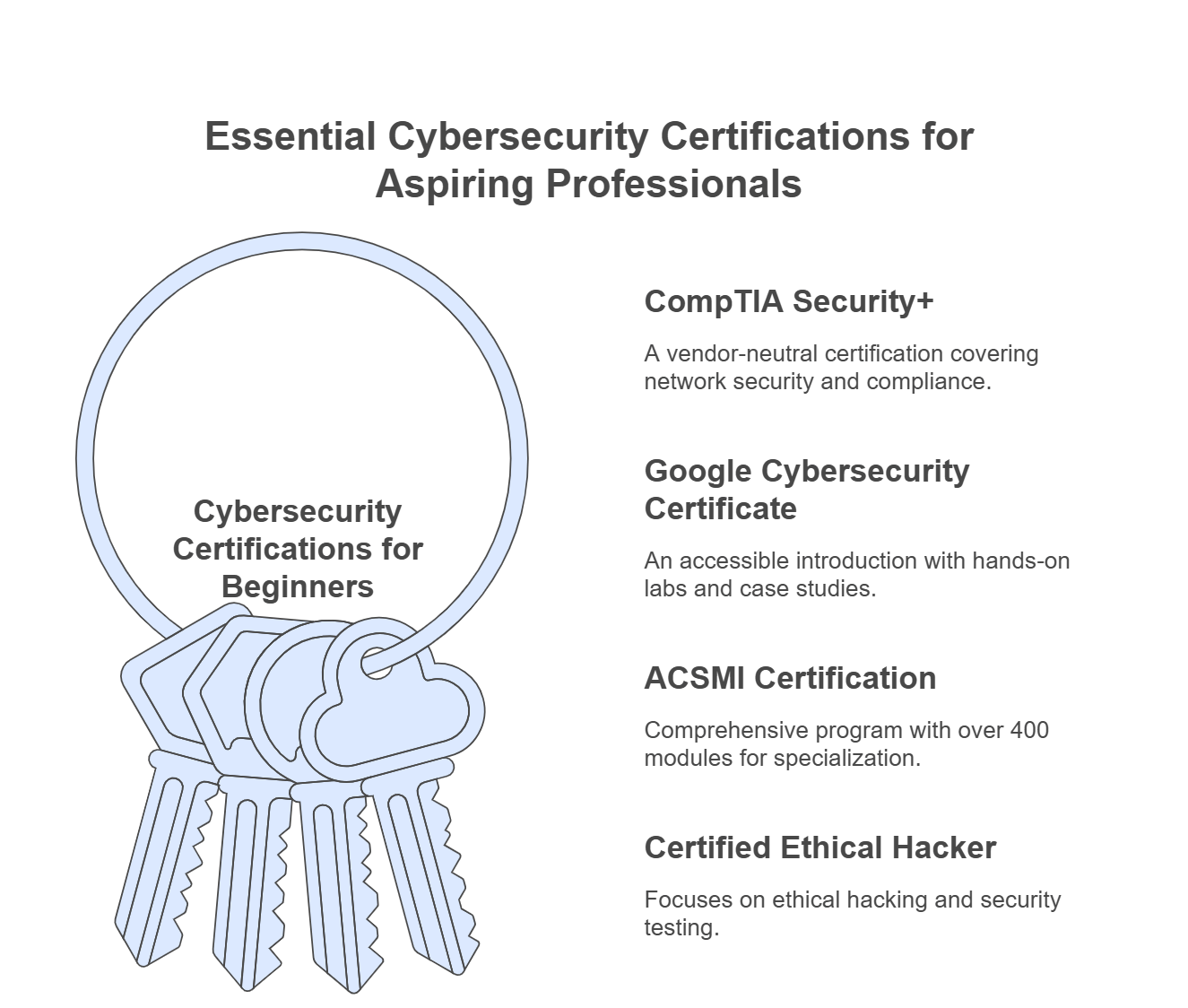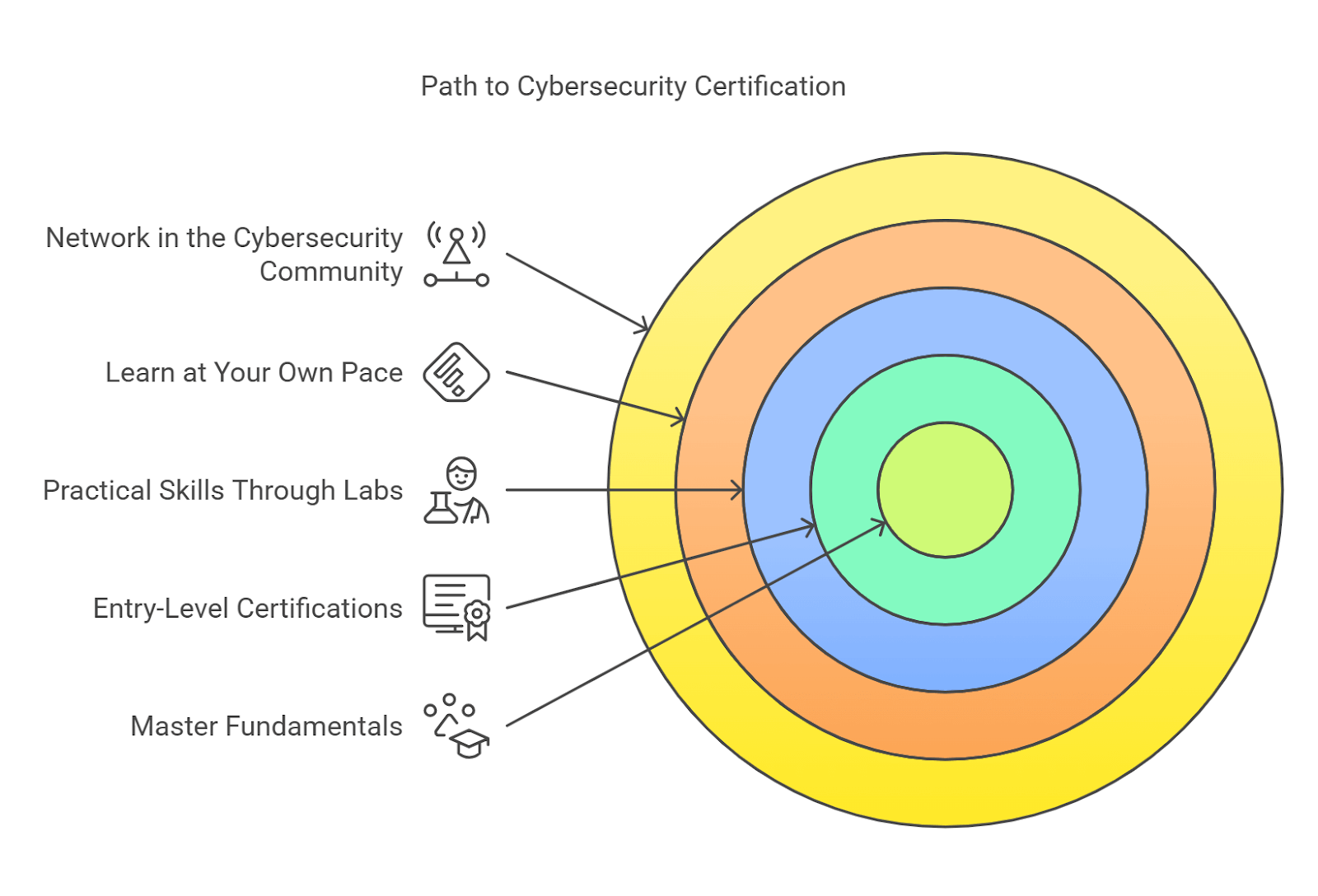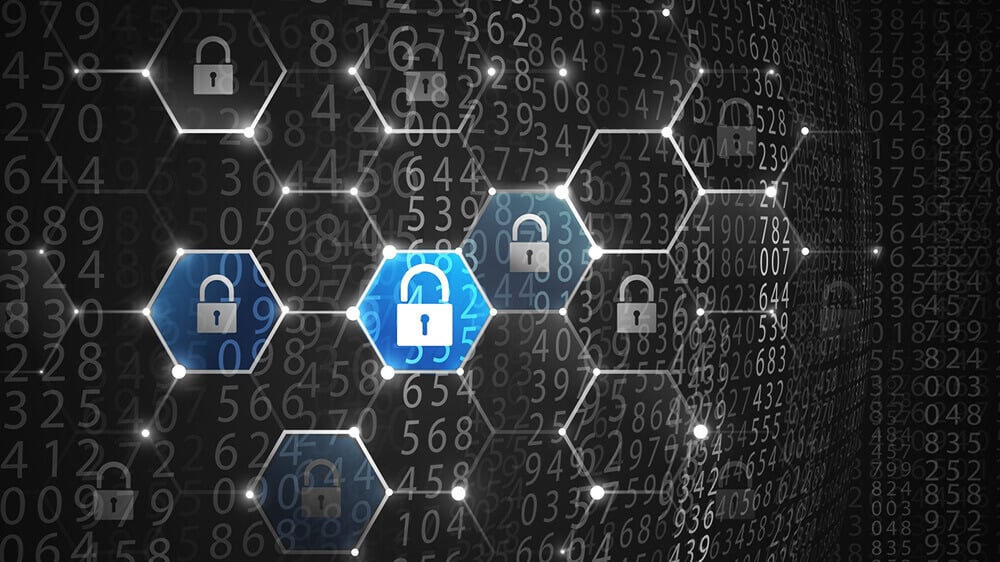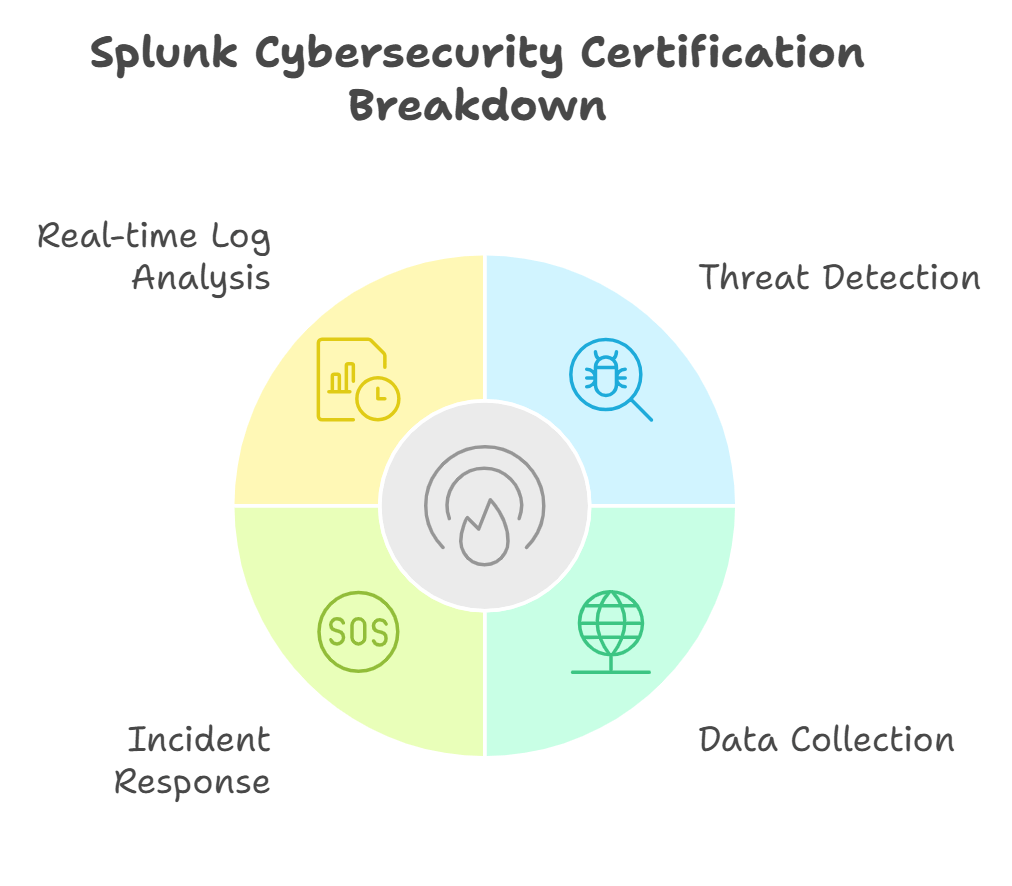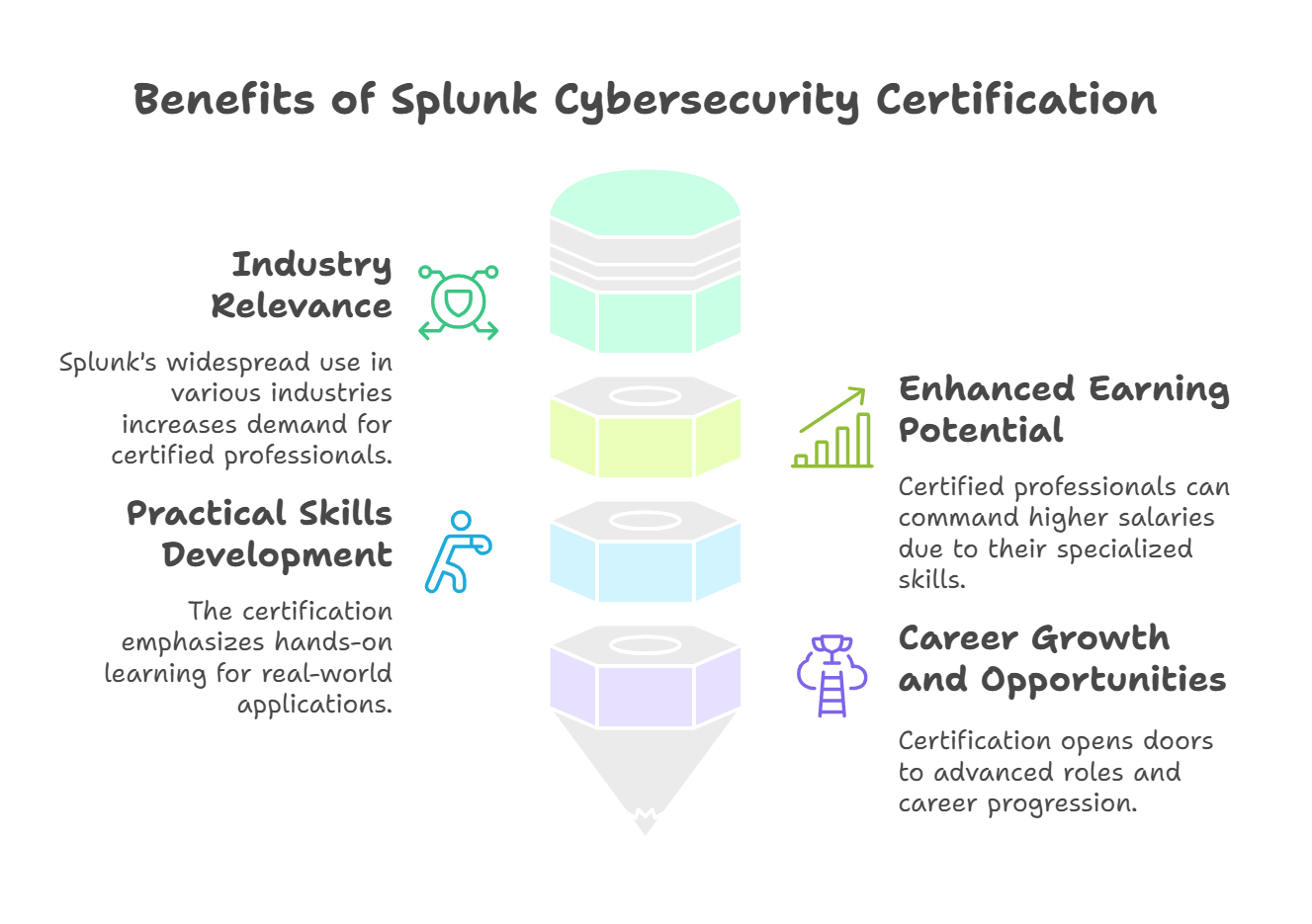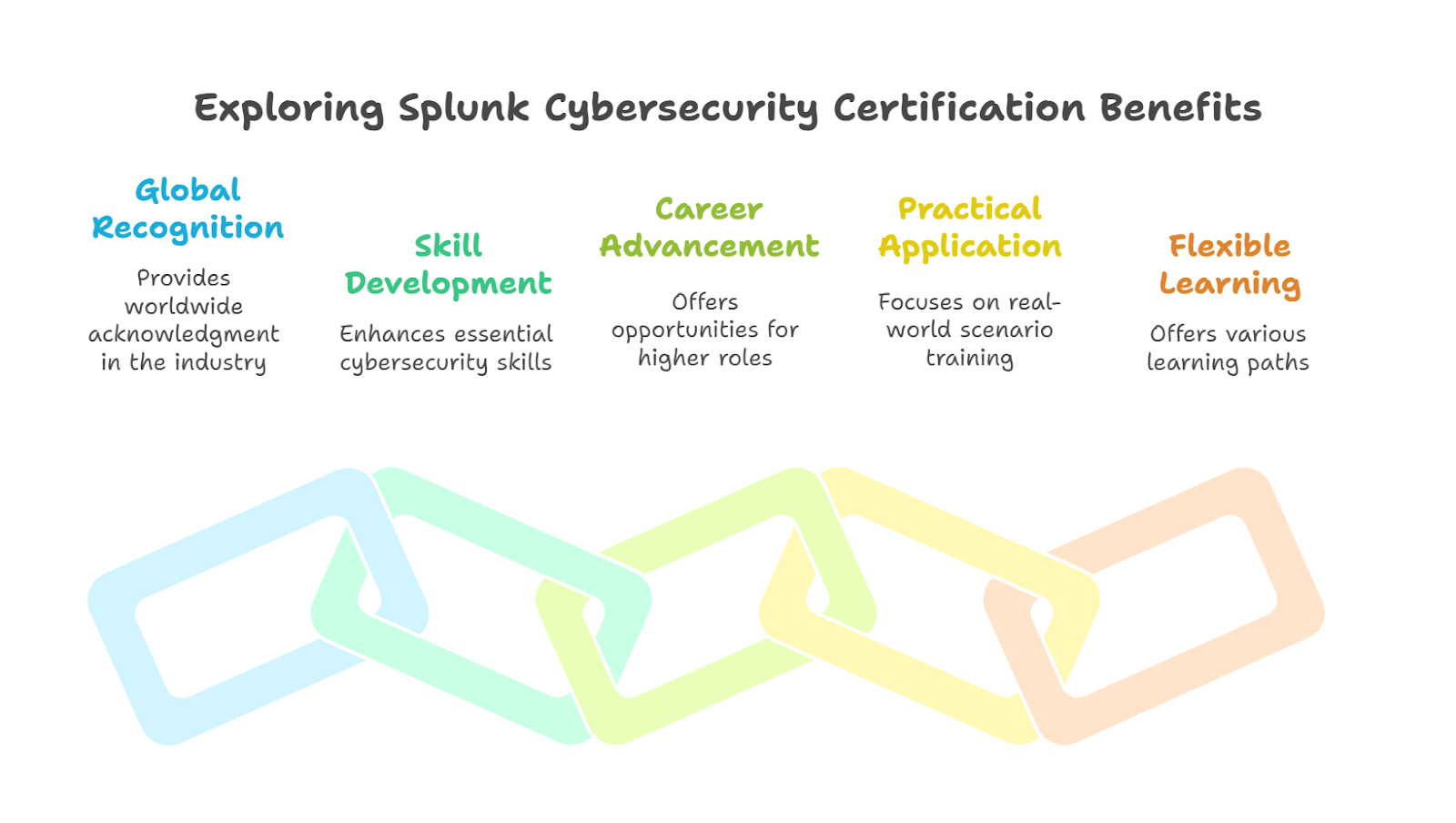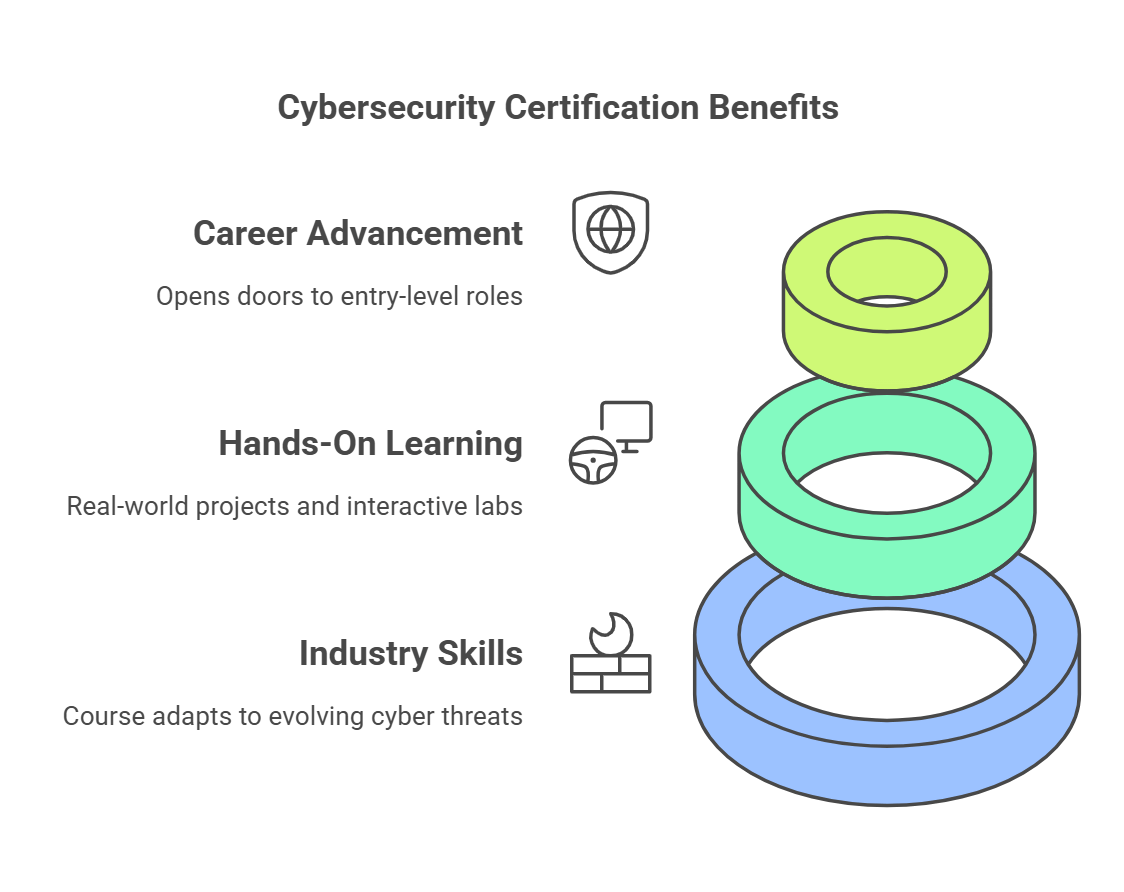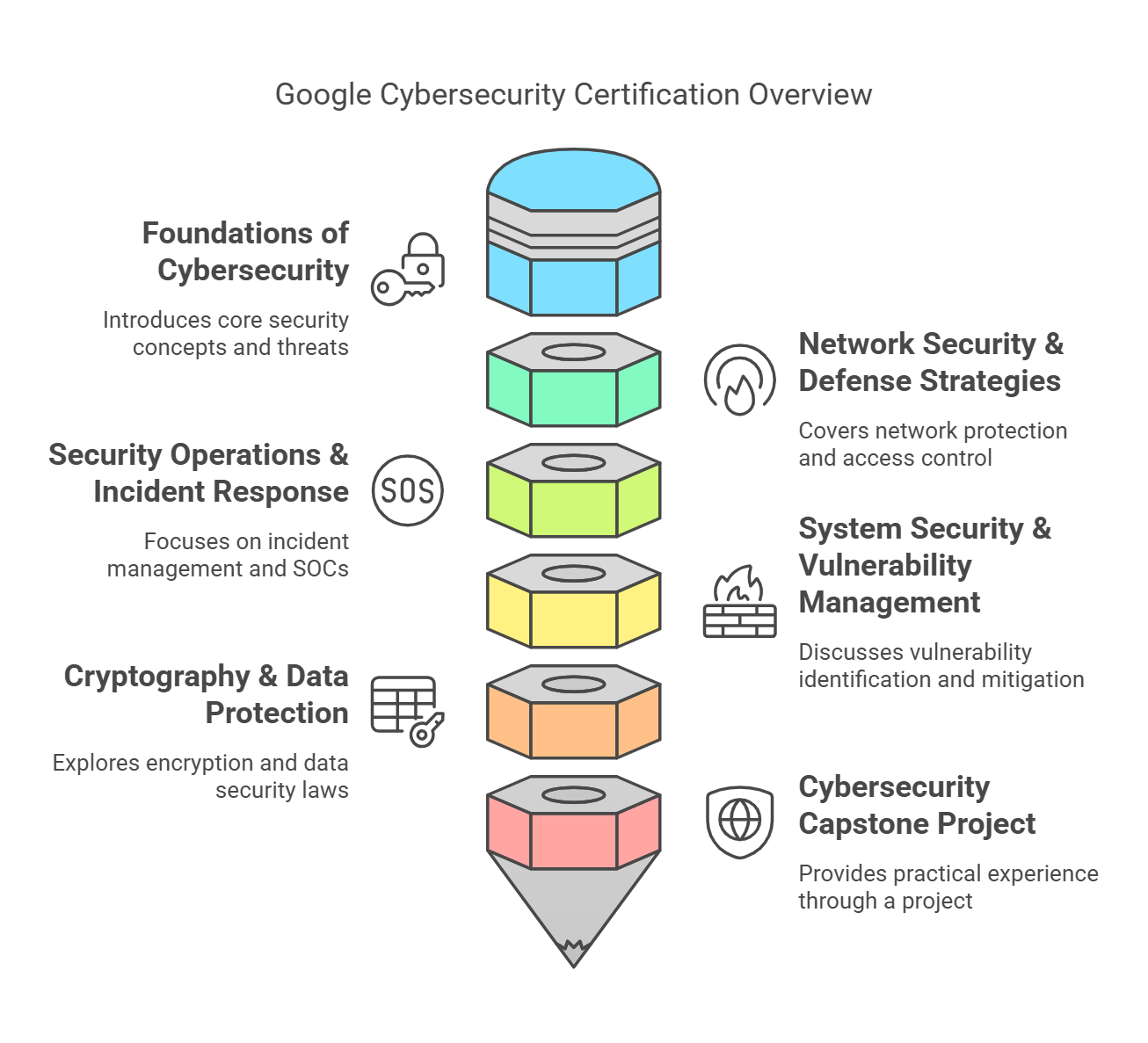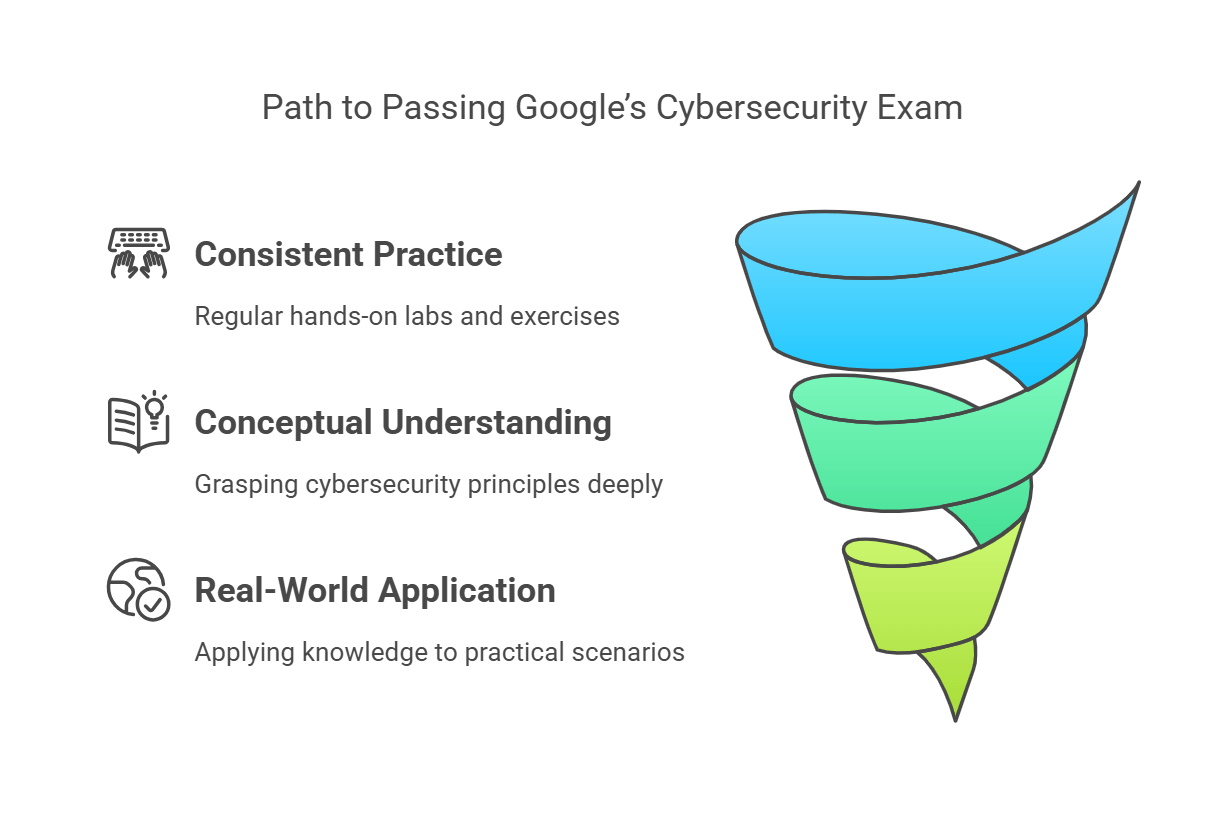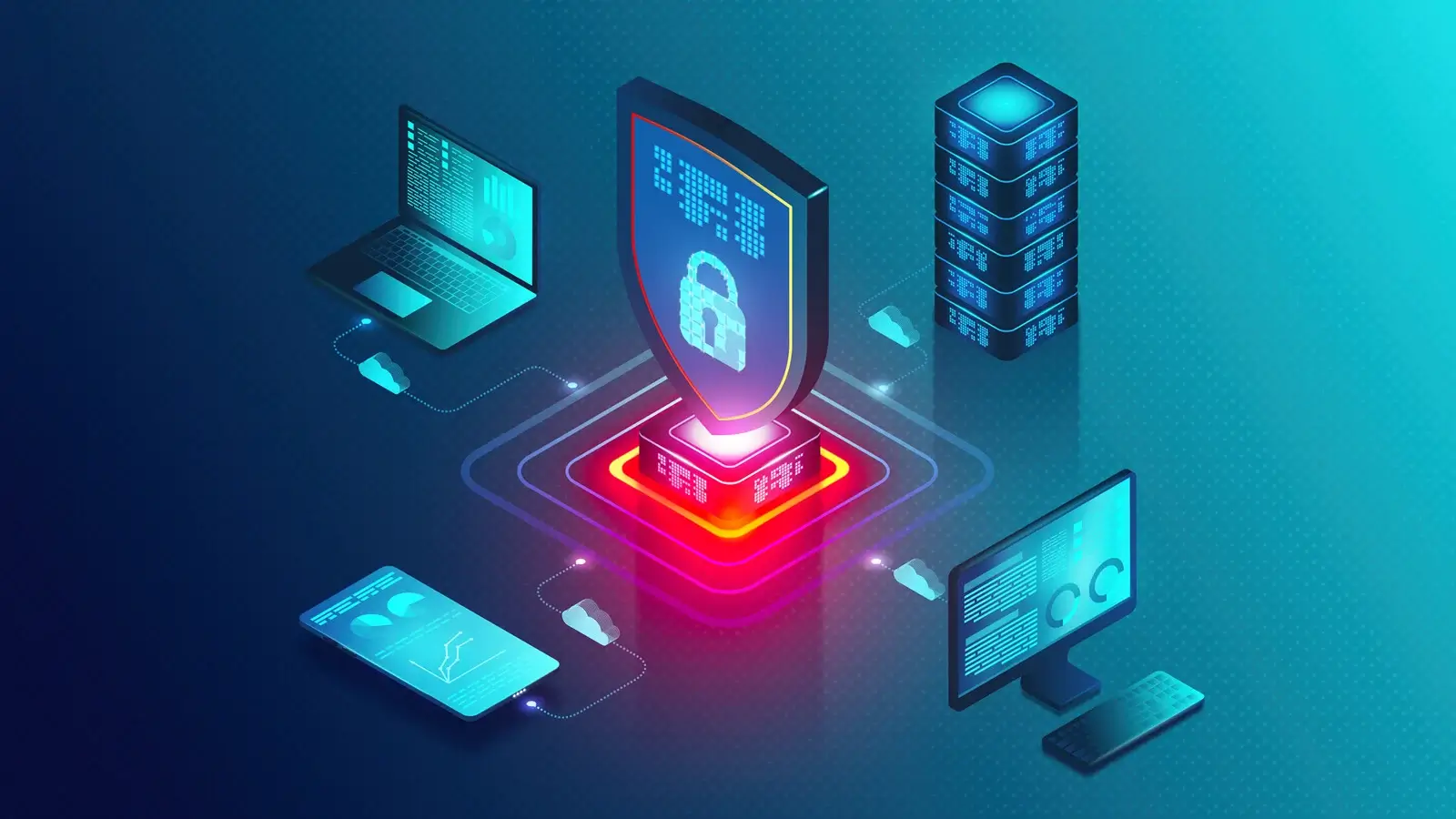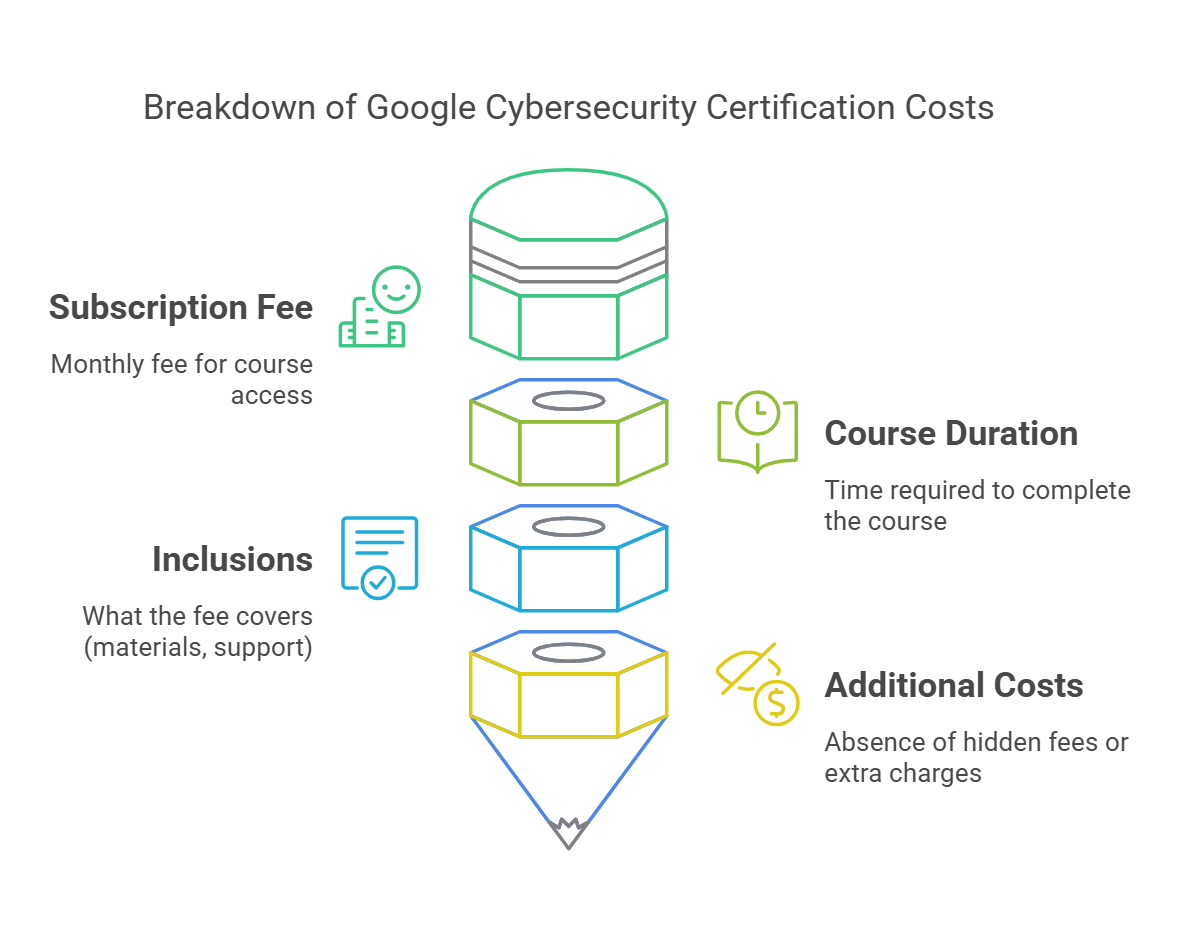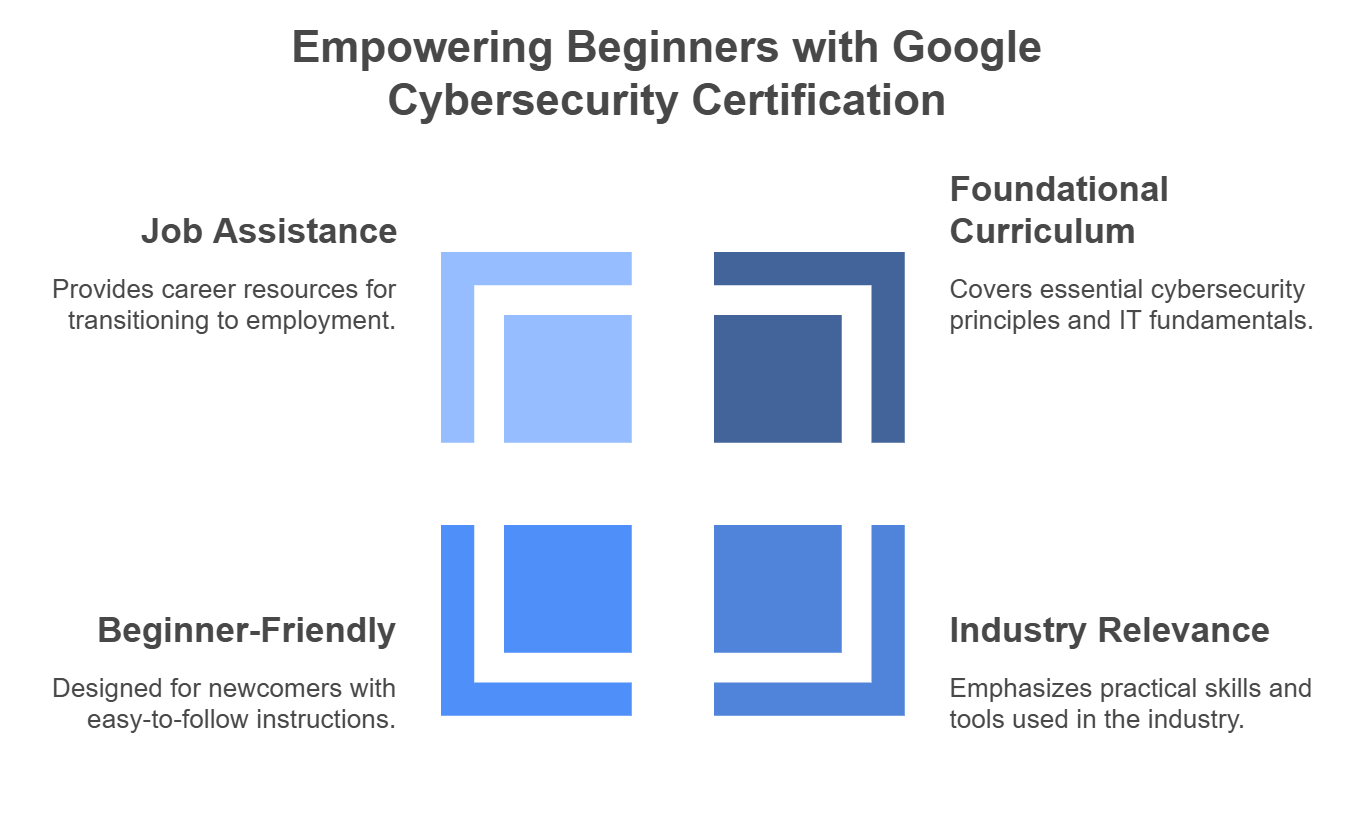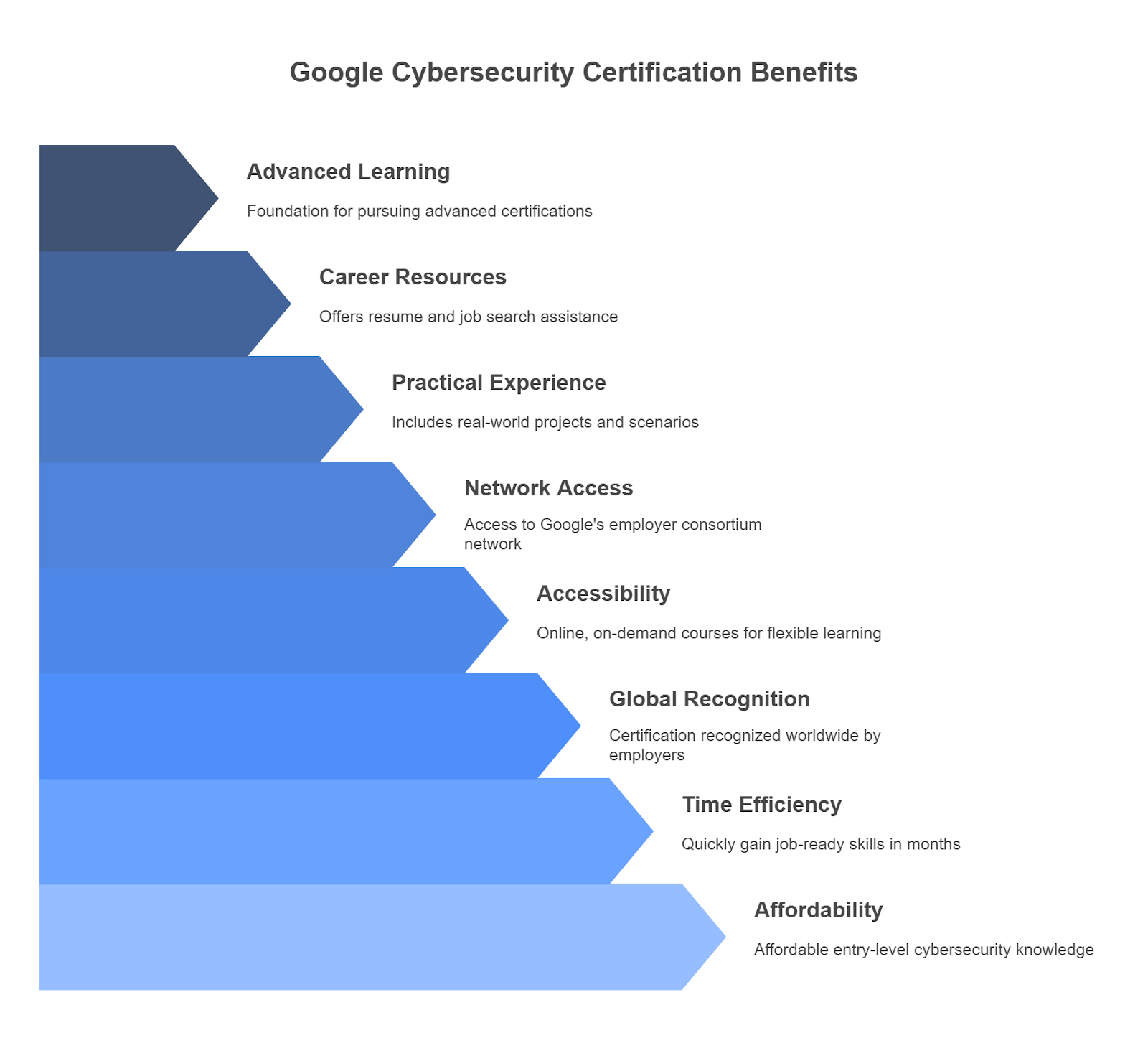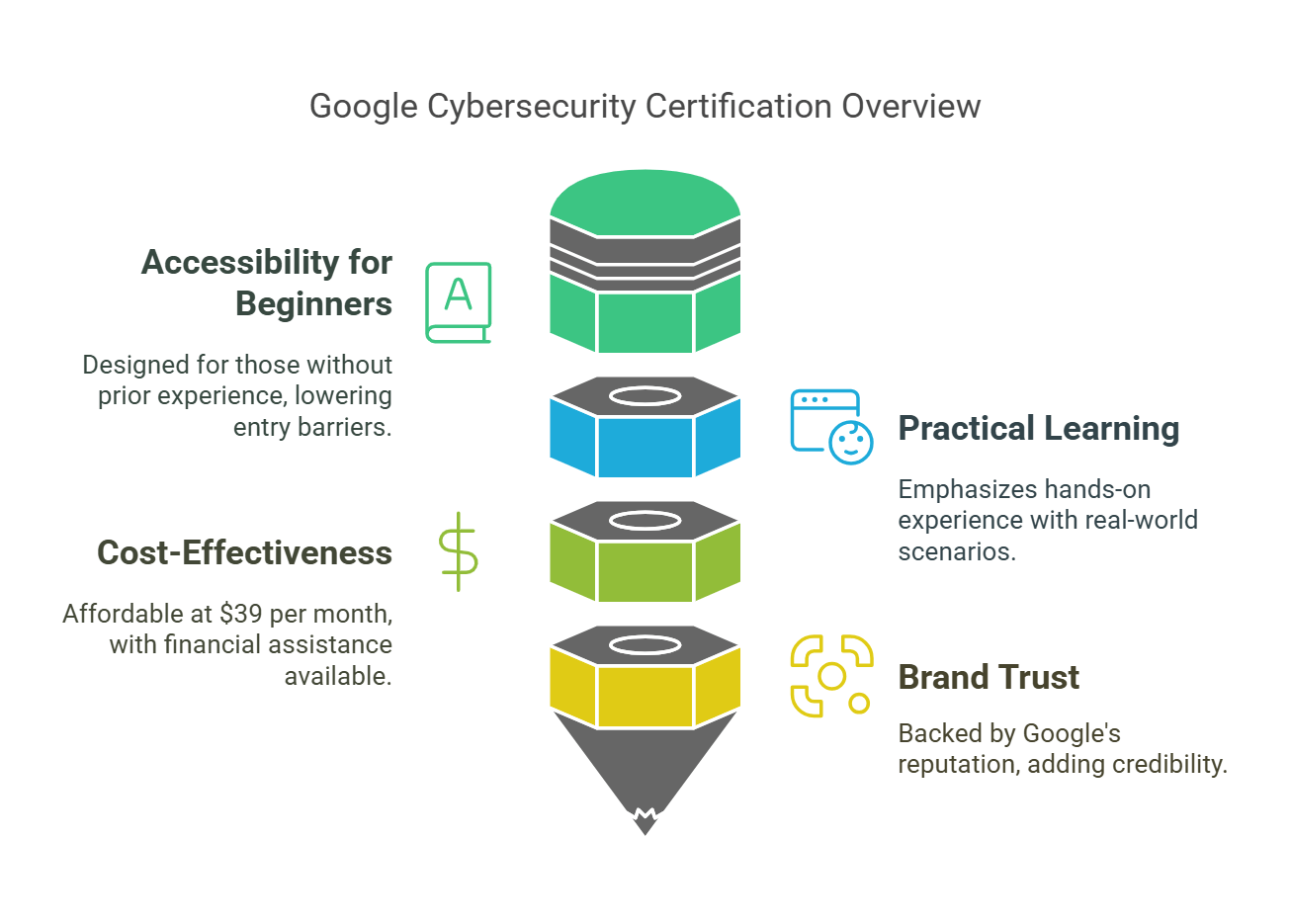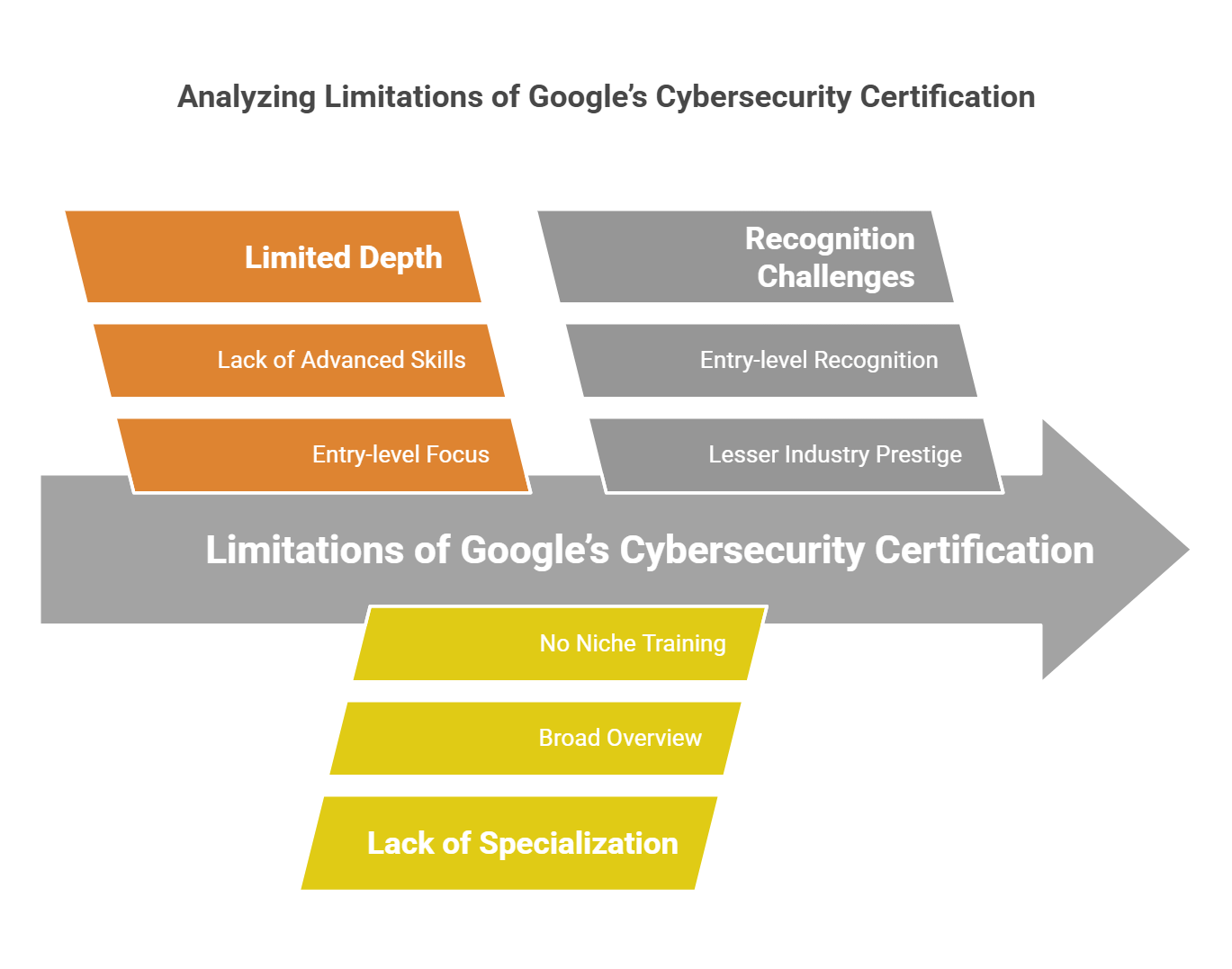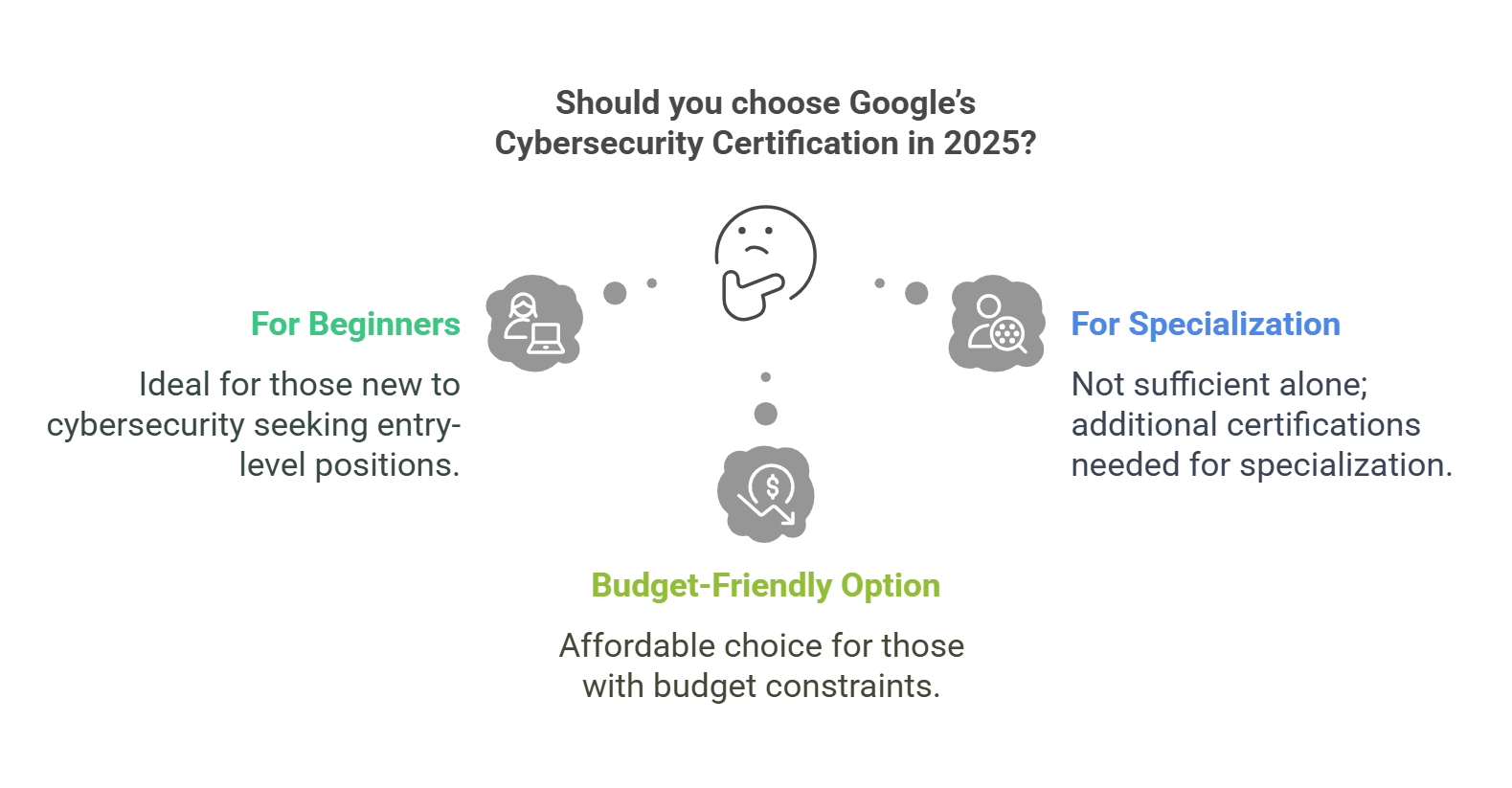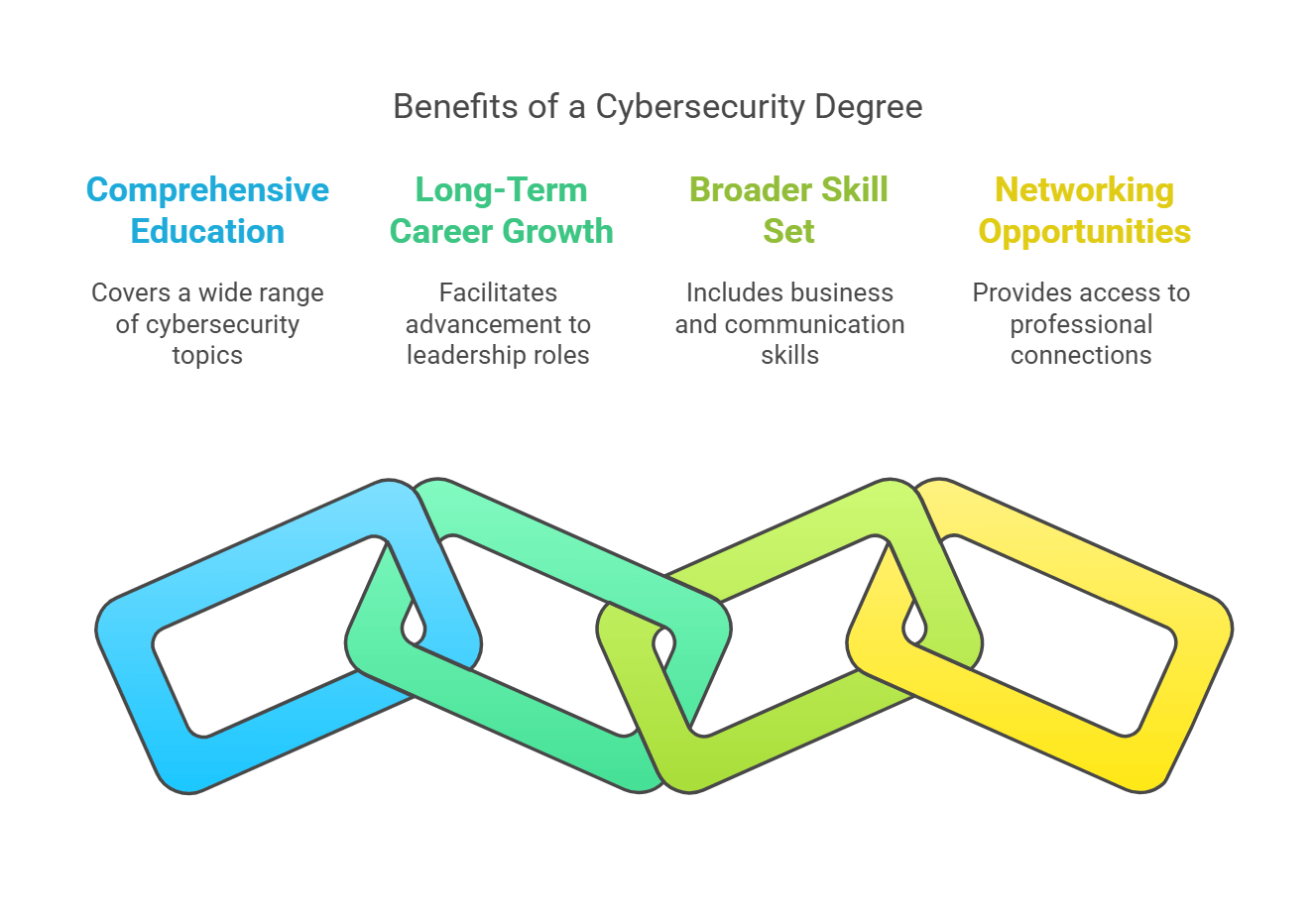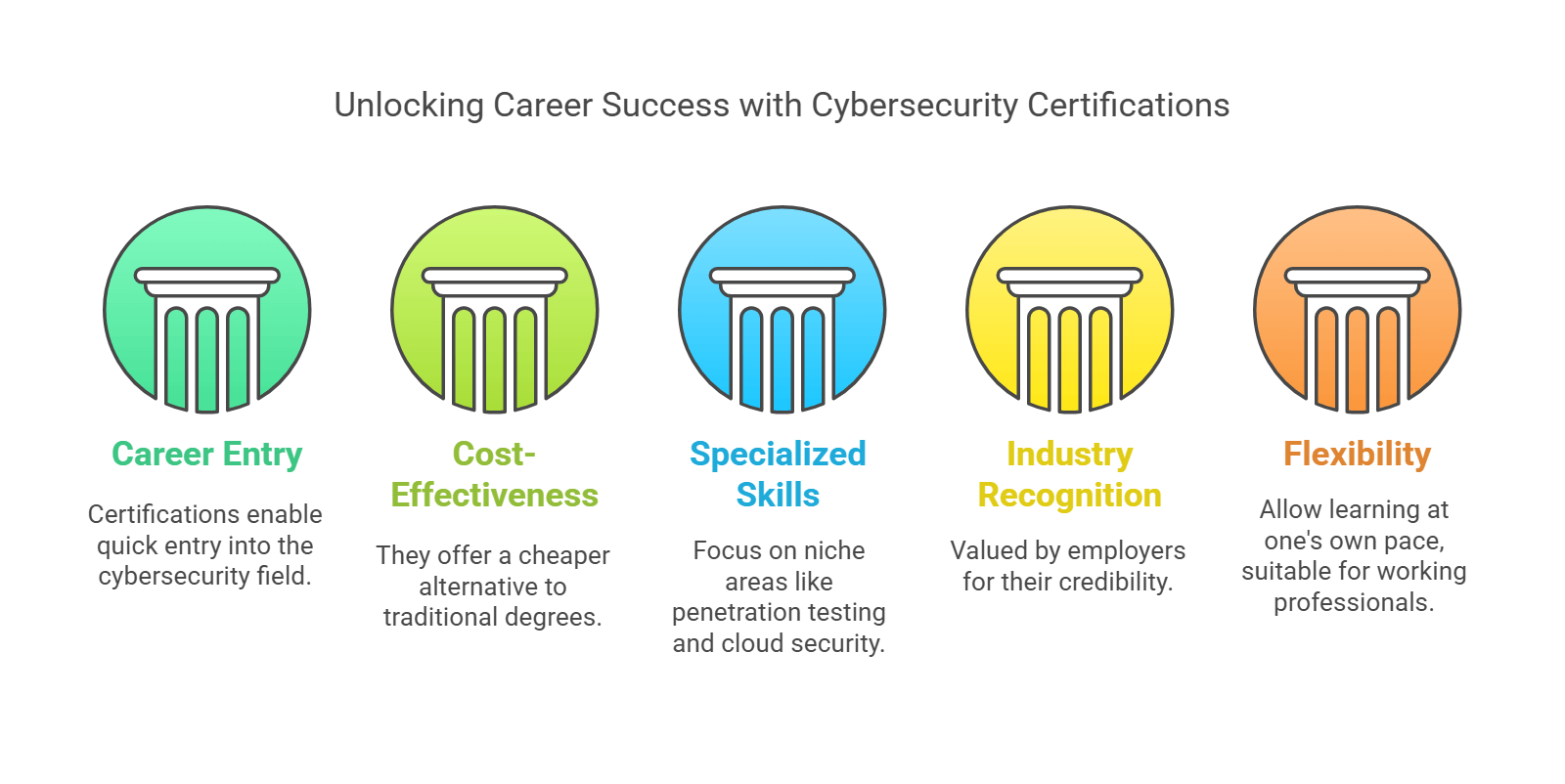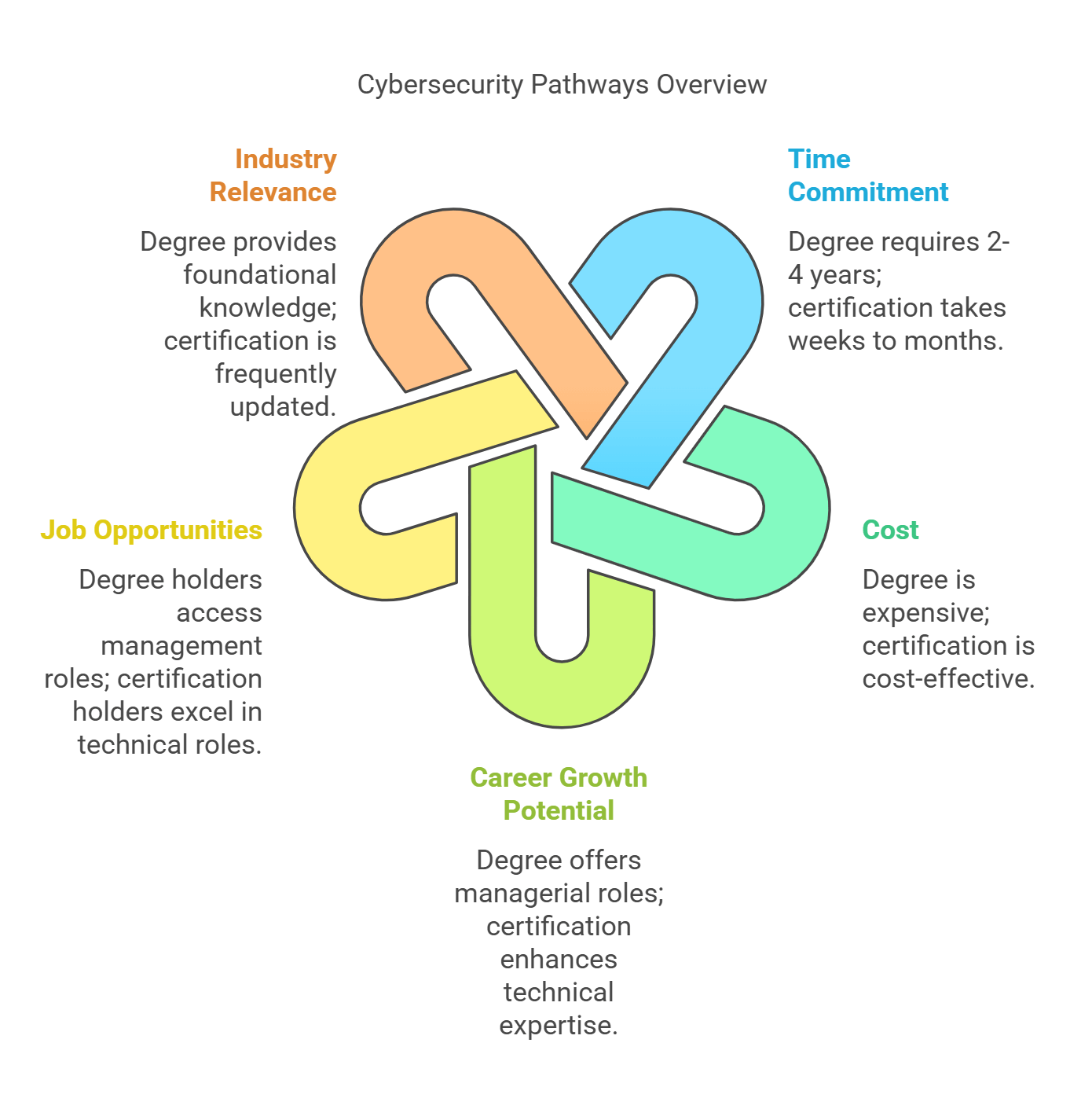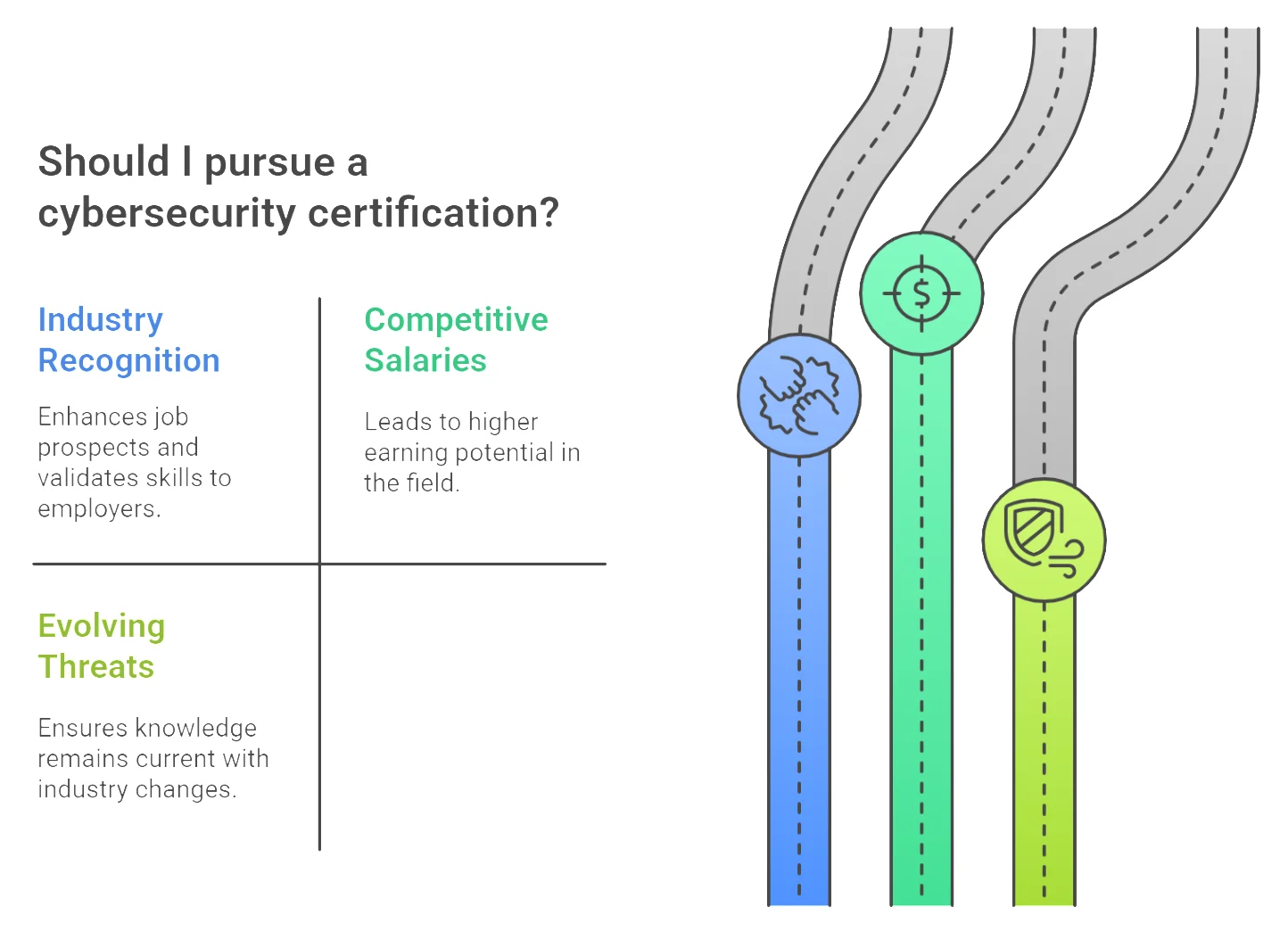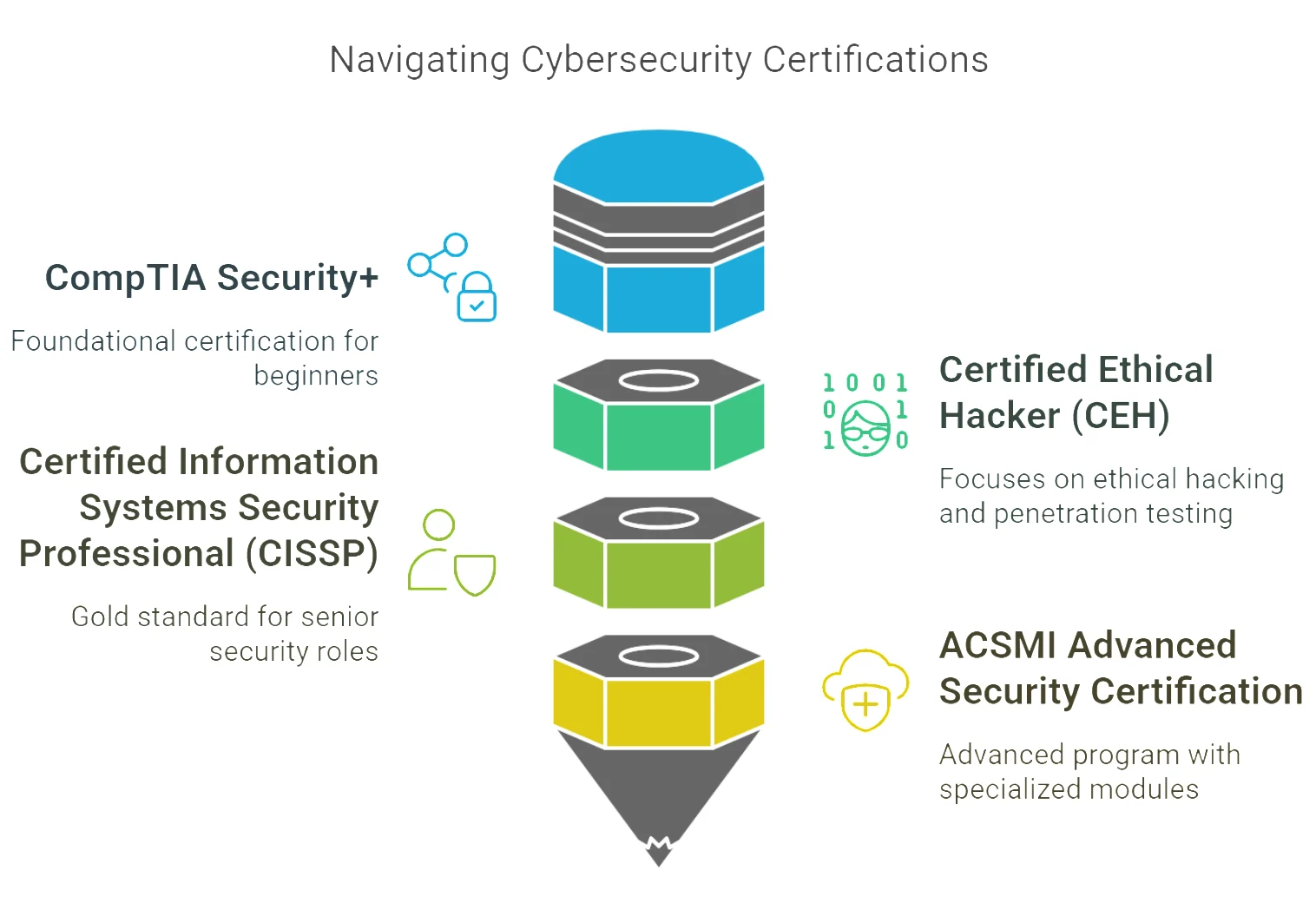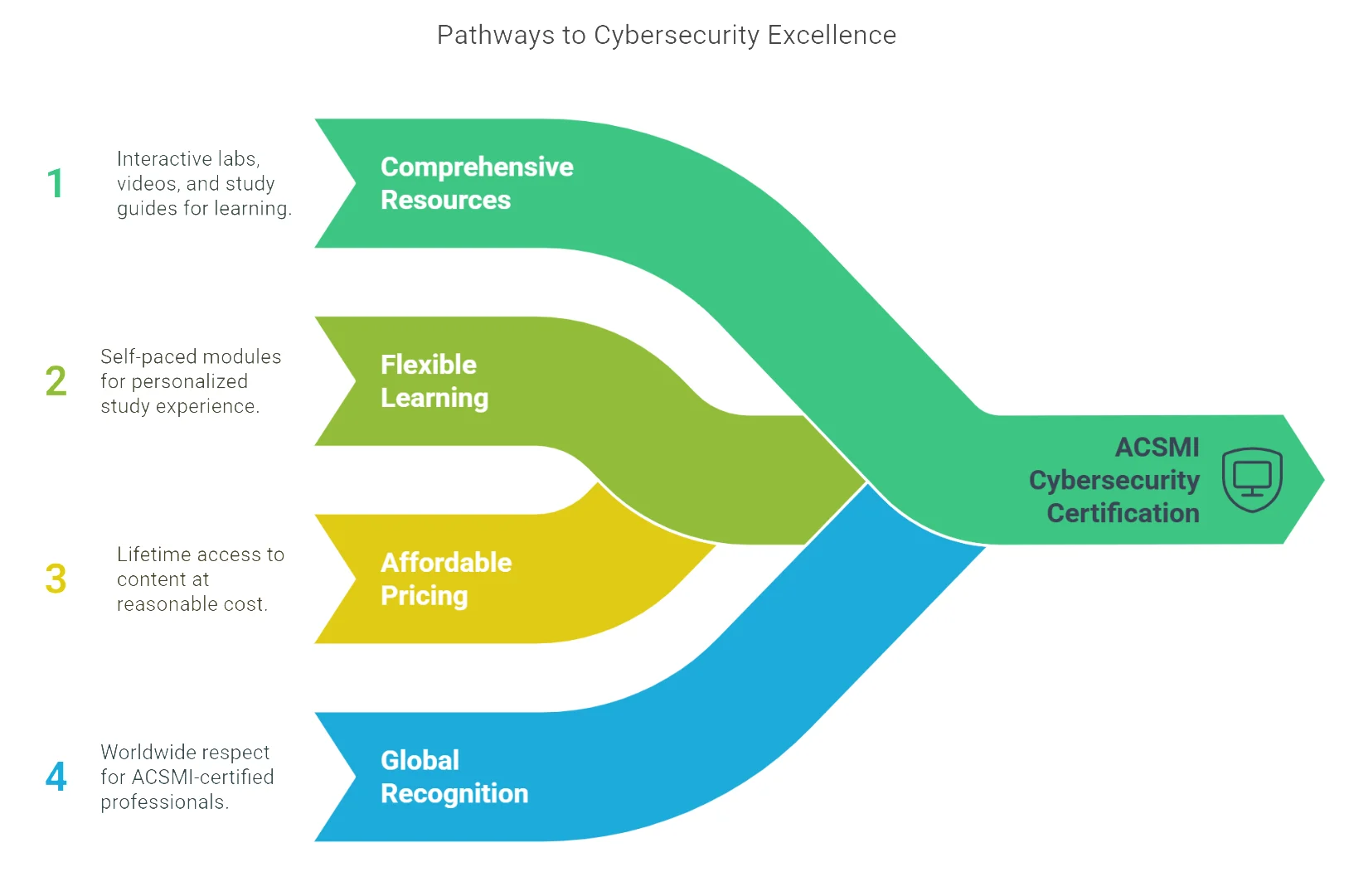Table of Contents
- Why Choose Cybersecurity Certification CompTIA?
- What Does Cybersecurity Certification CompTIA Cover?
- Benefits of Cybersecurity Certification CompTIA
- How to Prepare for Cybersecurity Certification CompTIA
- Comparing CompTIA to ACSMI Certification
- Cybersecurity Career Roles After CompTIA Certification
- Informative Table
- FAQ
- Final Thoughts
Cybersecurity is one of the fastest-growing and most critical industries in the world today. With job openings consistently outpacing the availability of qualified professionals, certifications have emerged as the gold standard for entering and succeeding in this field. One name that stands out in the certification space is cybersecurity certification CompTIA—a trusted and widely recognized program geared toward both beginners and professionals looking to advance their careers.
Whether you’re starting from scratch or building on existing skills, cybersecurity certification CompTIA offers practical and industry-relevant knowledge. This blog will guide you through everything you need to know about it, covering its structure, benefits, costs, and how it compares to other programs like ACSMI’s 400+ modules.
Why Choose Cybersecurity Certification CompTIA?
The cybersecurity certification CompTIA program is recognized worldwide for its vendor-neutral, practical approach to cybersecurity. Here’s why it matters for individuals at various stages of their careers:
-
Industry Relevance
CompTIA certifications are designed with input from a wide network of industry leaders, ensuring the curriculum stays aligned with job market needs. This focus makes it ideal for roles such as Security Analyst, SOC Analyst, and Threat Intelligence Specialist. -
Beginner-Friendly Pathway
CompTIA Security+, the flagship cybersecurity certification, is perfect for beginners. It introduces foundational topics like network security, device protection, and risk management while preparing you for real-world challenges. -
Global Recognition
Employers across industries recognize CompTIA as a mark of competence, making it a valuable credential no matter where you aim to work. -
Stepping Stone for Advanced Certifications
Completing a CompTIA certification often serves as a prerequisite or stepping stone for other specialized certifications, such as Certified Ethical Hacker (CEH) or programs like ACSMI’s certification.
What Does Cybersecurity Certification CompTIA Cover?
The cybersecurity certification CompTIA suite includes multiple programs targeted at different levels of expertise. Here’s a quick look at the core options:
-
CompTIA Security+
- Geared toward entry-level professionals.
- Covers topics such as threat assessments, incident response, and cryptographic fundamentals.
- Focuses on hands-on skills that prepare you for real-world security incidents.
-
CompTIA CySA+ (Cybersecurity Analyst)
- Aimed at those who already have some foundational knowledge.
- Teaches advanced threat management and vulnerability analysis.
-
CompTIA PenTest+
- Ideal for professionals aiming to specialize in penetration testing and ethical hacking.
- Focuses on identifying and mitigating vulnerabilities.
-
CompTIA Advanced Security Practitioner (CASP+)
- Tailored for senior professionals, this certification covers enterprise security and advanced analytics.
- Focuses heavily on problem-solving and technical expertise.
Benefits of Cybersecurity Certification CompTIA
-
Comprehensive Curriculum
With its suite of certifications, CompTIA addresses the needs of everyone—from absolute beginners to seasoned professionals. -
Hands-On Learning
CompTIA exams are designed to test both theoretical understanding and practical application, particularly in simulations of real-world scenarios. -
Affordable Entry Point
Compared to other certifications like CEH or ACSMI’s comprehensive certification, CompTIA Security+ offers a cost-effective entry into cybersecurity. -
Career Advancement Opportunities
Starting with CompTIA Security+ or CySA+ can open the door to high-demand roles such as Cybersecurity Specialist, Penetration Tester, and SOC Analyst. -
Flexible Learning Options
Whether you prefer live classes or self-paced study, CompTIA offers multiple formats to suit various learning styles.
How to Prepare for Cybersecurity Certification CompTIA
-
Understand the Exam Objectives
CompTIA provides detailed exam blueprints—essential for focusing your study efforts. -
Use Official Study Materials
Access official books, online courses, and lab simulations directly from CompTIA. -
Enroll in Practice Labs
Hands-on labs allow you to apply concepts in realistic scenarios, increasing comprehension and readiness. -
Join Online Communities
Forums like Reddit and LinkedIn groups offer peer support from individuals preparing for the same exams. -
Set a Study Schedule
Organizing your study time ensures consistent progress without overwhelming yourself.
Comparing CompTIA to ACSMI Certification
While CompTIA certifications are vendor-neutral and ideal for beginners, it’s also worth considering more extensive programs like ACSMI’s certification. ACSMI’s certification boasts over 400 modules, making it one of the most comprehensive programs in the industry. Here’s a quick comparison between the two for those exploring options in cybersecurity certification.
Cybersecurity Career Roles After CompTIA Certification
A cybersecurity certification CompTIA opens doors to numerous roles depending on the certification level you pursue. Common entry-level roles include Security Analyst and IT Auditor, while advanced certifications like CASP+ prepare you for senior roles in enterprise security architecture.
The demand for cybersecurity professionals continues to grow as organizations invest heavily in safeguarding their digital assets. With average starting salaries ranging between $70,000 and $95,000, CompTIA-certified professionals enjoy both job security and financial rewards.
Informative Table
FAQ
Q1. Is cybersecurity certification CompTIA suitable for beginners?
Absolutely! CompTIA certifications like Security+ are specifically designed for entry-level professionals, offering a clear and easy introduction to cybersecurity.
Q2. How much does cybersecurity certification CompTIA cost?
The cost varies by certification. Security+ costs around $392 for the exam, while advanced certifications like CASP+ may cost upwards of $500.
Q3. Can I earn a CompTIA certification online?
Yes, CompTIA offers fully online learning options, including virtual labs and remote proctored exams.
Q4. How long does it take to prepare for CompTIA certifications?
Preparation time depends on your experience level, but most people take 2–3 months of consistent study to pass Security+.
Q5. How does CompTIA compare to ACSMI’s certification?
CompTIA certifications focus on general industry relevance at various levels, while ACSMI offers a highly comprehensive program with over 400 specialized modules, catering to long-term career growth.
Q6. How difficult are CompTIA exams?
The difficulty varies by exam. Security+ is generally considered manageable for beginners with adequate preparation, while exams like CASP+ present more advanced and technical challenges for experienced professionals. Using official resources and practice exams can significantly improve your chances of success.
Q7. Do CompTIA certifications have an expiration date?
Yes, most CompTIA certifications are valid for three years. You’ll need to renew them through CompTIA’s Continuing Education (CE) program, which involves completing qualifying activities like additional training or retaking the exam.
Q8. What is the career impact of a CompTIA certification?
A CompTIA certification can significantly boost your resume, making you stand out to employers. It validates your skills in cybersecurity, opening up roles such as IT Security Analyst, SOC Analyst, and more. CompTIA certifications are often a stepping stone to advanced positions in the field.
Q9. Can I pursue more than one CompTIA certification at a time?
Yes, many professionals pursue multiple certifications to broaden their cybersecurity expertise. For example, starting with Security+ and progressing to CySA+ or PenTest+ allows you to build both foundational and specialized skills.
Final Thoughts
The cybersecurity certification CompTIA program is an excellent starting point for those aiming to enter or grow within the cybersecurity sector. Its affordability, practical focus, and global recognition make it a standout choice for both beginners and experienced professionals. However, for those looking to invest in a highly specialized, long-term learning pathway, ACSMI’s certification with over 400 modules stands as an unmatched alternative.
With demand for cybersecurity professionals expected to surge through 2025 and beyond, earning a certification is an investment in both skill-building and career growth. Take the first step, choose the program that aligns with your goals, and join the ranks of professionals safeguarding the digital world.



